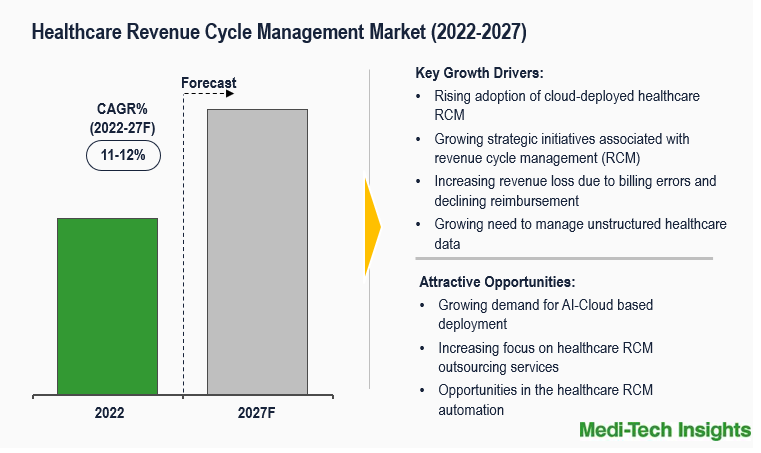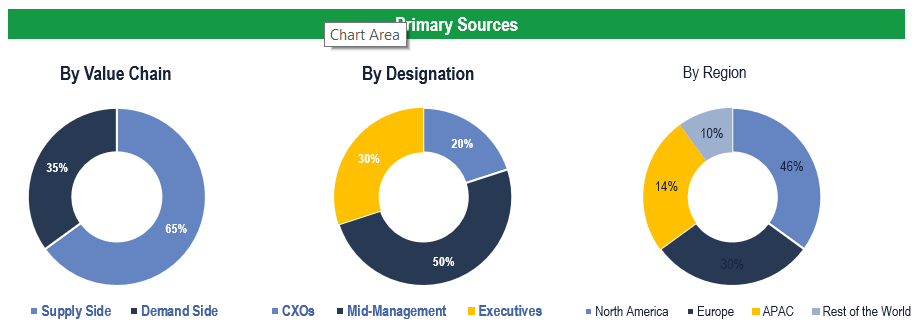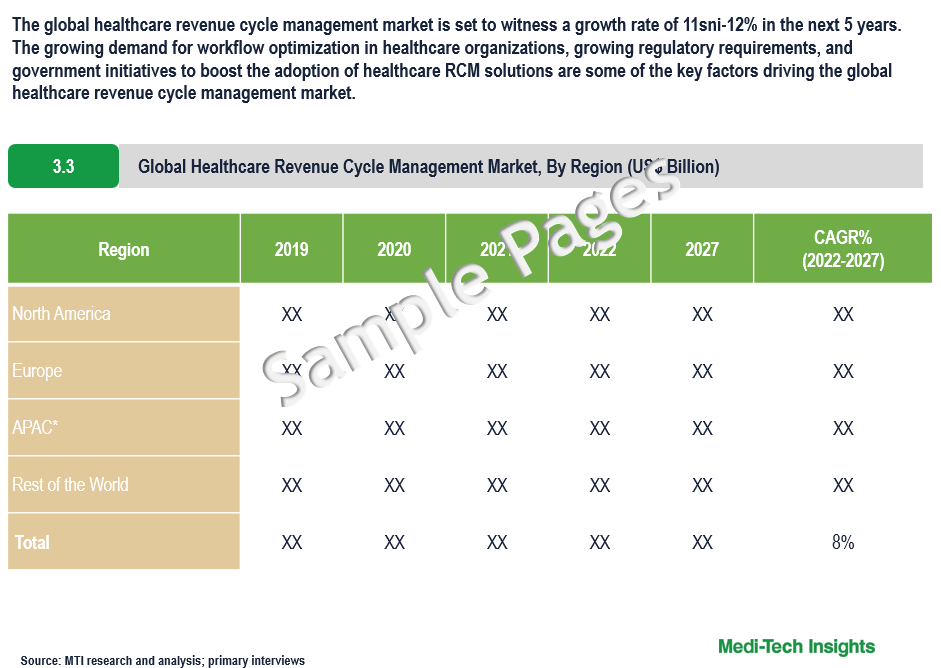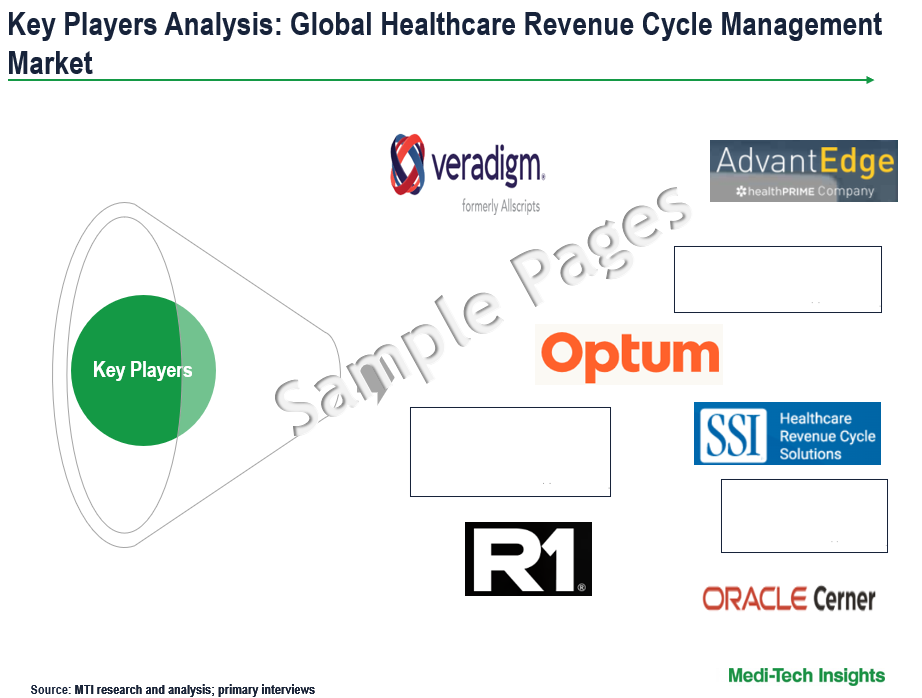
Healthcare Revenue Cycle Management Market – Maximizing Profits & Curtailing Costs

The Global Healthcare Revenue Cycle Management (RCM) Market is expected to grow at a rate of ~11-12% by 2027. The growing demand for workflow optimization in healthcare organizations, regulatory requirements and government initiatives to boost the adoption of healthcare RCM solutions, increasing adoption of cloud-deployed Healthcare RCM, growing strategic initiatives associated with healthcare revenue cycle management (RCM), and growing revenue loss due to billing error and declining reimbursement are some of the key factors driving the healthcare revenue cycle management market growth.
Healthcare Revenue Cycle Management (RCM) refers to the process of identifying, collecting, and managing the practice’s revenue from payers based on the services provided. A successful Healthcare RCM process is essential for a healthcare practice to maintain financial viability and continue providing quality patient care.
Growing Potential of RCM Outsourcing in Healthcare Drives the Healthcare Revenue Cycle Management Market
Leveraging technology offered by outsourcing partnerships can offer streamlined workflows, increased efficiency, focus on patient care, timely and improved reimbursement, error-free billing, improved payments, and accuracy, all of which can lead to reduced costs and increased revenue collection. Another reason why Healthcare RCM outsourcing is on the rise is that many health systems have learned they have lagged internally in building technologies and can no longer keep up with the speed of technological advancements. Thus, they are gradually adopting digitally enabled modular solutions to revamp their healthcare RCM operations by collaborating with third-party service providers who can combine people, processes, and technology into one robust revenue cycle solution.
Growing Adoption of RCM Solutions in Healthcare Fuels Its Global Demand
An efficient, high-functioning revenue cycle is key to any healthcare organization’s operational success. Healthcare RCM helps healthcare organizations to improve their cash flow, improve staff performance and patient experience, optimize revenue, prevent revenue leakage, reduce costs, improve efficiency, and ensure compliance with regulatory requirements. Thus, a clinically driven revenue cycle empowers organizations to drive results, like limiting denials, increasing clean claim rates, minimizing re-work, and lessening the chance for delayed or missed reimbursement opportunities which are further expected to increase the demand for healthcare RCM solutions in the upcoming years.

Automation, Data Analytics, Patient-centric Approach and Payment Reforms Set to Drive the Global Healthcare RCM Market
By integrating next-generation digital technologies, vendors can enhance consumer centricity, improve patient touch-points, optimize reimbursement, and minimize denials to improve cash flow across the healthcare ecosystem. The most significant healthcare RCM trends that will amplify the organization's financial health are:
- Automation: Automating the revenue cycle can move the process along faster while still providing exceptional patient care. Automation can help healthcare businesses save money and time by reducing operational costs and downtime.
- The Vital Role of Data Analytics in the Healthcare Revenue Cycle: Powerful technologies, including cloud, AI, machine learning (ML), and predictive analytics, will catalyze health systems to proactively monitor and quickly address compliance and revenue risks as they emerge.
- More Focus on a Patient-centric Approach by Medical Practices: Focusing on more of a patient-centric approach can assure medical practice of augmented revenue flow, particularly enhancing business to a better level. Technology is making it easier for organizations to engage with patients and provide them with better experiences.
- Payment Reforms: The healthcare system is undergoing major initiatives such as value-based care and bundled payments. In recent years, value-based care has been another fast-emerging trend that has begun to gain traction.
Key Constraints/Challenges to the Healthcare Revenue Cycle Management Market
High pricing and maintenance of healthcare RCM solutions, lack of proper IT infrastructure, ever-changing healthcare regulations, complex reimbursement models that are introduced every few years, collecting payment from patients, tracking a claim through its entire cycle, and staff training are some of the key factors that are likely to hamper the growth of the healthcare revenue cycle management market in the forecast period.
North America is Set to Continue to Hold a Larger Share in the Healthcare Revenue Cycle Management Market
From a geographical perspective, North America holds a major share of the global healthcare revenue cycle management market. This can be mainly attributed to the growing adoption of RCM in healthcare, an increasing adoption of cloud-based solutions, the growing demand to manage unstructured healthcare data, an increasing adoption of electronic health records, and the presence of key market players, in this region. However, the Asia-Pacific region is expected to witness a strong growth in the healthcare RCM market in the upcoming years due to an increasing patient volume and growth in health insurance, growing demand for robust process improvement in healthcare, growing demand for efficient healthcare services, and the loss of revenue due to billing errors, and declining reimbursement in the region.
Competitive Landscape Analysis: Healthcare Revenue Cycle Management Market
Some of the key and established players operating in the global healthcare revenue cycle management market are listed below:-
- The SSI Group LLC
- Veradigm Inc
- R1 RCM Inc
- McKesson Corporation
- Athenahealth Inc.
- Epic Systems Corporation
- Quest Diagnostics Inc.
- Cerner Corporation
- Constellation Software
- GE Healthcare
- eClinicalWorks
- NXGN Management LLC
- CareCloud Corporation
- AdvantEdge Healthcare Solutions
- Optum Inc
- Oracle Corporation
- Accenture plc
- Conifer Health Solutions LLC
Organic and Inorganic Growth Strategies Adopted by Players to Establish Their Foothold in the Market
All key players operating in the global healthcare RCM market are adopting both organic and inorganic growth strategies such as collaborations, acquisitions, and new product launches to garner a larger market share.
For instance,
- In January 2023, Optum and Owensboro Health announced that they have entered into a partnership to enhance patient care and experience while meeting the community’s evolving healthcare needs. Through the partnership, Owensboro Health’s revenue cycle management operations and information technology services will become part of Optum, providing new opportunities for team member growth and career advancement.
- In August 2022, R1 RCM Inc. announced that they have entered into a 10-year partnership with St. Clair Health to serve as its primary provider of end-to-end revenue cycle management (RCM) services.
The global healthcare revenue cycle management market is a fast growing market and is expected to gain further momentum in the upcoming years due to an increasing demand for efficient healthcare services and technological advancements, emergence of cost-effective-based healthcare solutions, and aggressive organic and inorganic growth strategies followed by the top market players.
Key Strategic Questions Addressed in this Research Report:
- What is the market size & forecast for the healthcare revenue cycle management market?
- What are the historical, present, and forecasted market shares and growth rates of various segments and sub-segments of the healthcare revenue cycle management market?
- How has Covid-19 impacted the healthcare revenue cycle management market?
- What are the major growth drivers, restraints/challenges impacting the healthcare RCM market?
- What are the opportunities prevailing in the healthcare revenue cycle management market?
- What is the investment landscape of healthcare revenue cycle management market?
- Which region has the highest share in the global healthcare RCM market? Which region is expected to witness the highest growth rate in the next 5 years?
- Who are the major players operating in the healthcare RCM market? What is the competitive positioning of key players?
- Who are the new players entering the healthcare RCM market?
- What are the key strategies adopted by players in healthcare revenue cycle management market?
1. Research Methodology
1.1. Secondary Research
1.2. Primary Research
1.3. Market Estimation
1.4. Market Forecasting
2. Executive Summary
3. Market Overview
3.1. Market Dynamics
3.1.1. Drivers
3.1.2. Restraints
3.1.3. Opportunities
3.2. Industry Speaks
4. Key Market Trends
5. Global Healthcare Revenue Cycle Management Market- Size & Forecast (2019-2027), By Deployment
5.1. On-Premises Solutions
5.2. Cloud-based Solutions
6. Global Healthcare Revenue Cycle Management Market- Size & Forecast (2019-2027), By Component
6.1. Software
6.2. Services
7. Global Healthcare Revenue Cycle Management Market- Size & Forecast (2019-2027), By Region
7.1. North America (U.S. & Canada)
7.2. Europe (UK, Germany, France, Italy, Spain, Rest of Europe)
7.3. Asia Pacific (China, India, Japan, Rest of Asia Pacific)
7.4. Rest of the World (Latin America, Middle East & Africa)
8. Competitive Landscape
8.1. Key Players and their Competitive Positioning (2022)
8.2. Offerings Assessment, By Player
8.3. Key Strategies Assessment, By Player (2021-2023)
8.3.1. New Product & Service Launches
8.3.2. Partnerships, Agreements, & Collaborations
8.3.3. Mergers & Acquisitions
8.3.4. Geographic Expansion
9. Key Companies Scanned (Indicative List)
9.1. Veradigm Inc
9.2. The SSI Group LLC
9.3. R1 RCM Inc
9.4. AdvantEdge Healthcare Solutions
9.5. Optum Inc
9.6. Cerner Corporation
9.7. McKesson Corporation
9.8. Athenahealth Inc
9.9. CareCloud Corporation
9.10. Conifer Health Solutions LLC
9.11. Epic Systems Corporation
The study has been compiled based on the extensive primary and secondary research.
Secondary Research (Indicative List)

Primary Research
To validate research findings (market size & forecasts, market segmentation, market dynamics, competitive landscape, key industry trends, etc.), extensive primary interviews were conducted with both supply and demand side stakeholders.
Supply Side Stakeholders:
- Senior Management Level: CEOs, Presidents, Vice-Presidents, Directors, Chief Technology Officers, Chief Commercial Officers
- Mid-Management Level: Product Managers, Sales Managers, Brand Managers, R&D Managers, Business Development Managers, Consultants
Demand Side Stakeholders:
- Stakeholders in Healthcare Providers and Payors.
Breakdown of Primary Interviews

Market Size Estimation
Both ‘Top-Down and Bottom-Up Approaches’ were used to derive market size estimates and forecasts.
Data Triangulation
Research findings derived through secondary sources & internal analysis were validated with Primary Interviews, Internal Knowledge Repository, and Company Sales Data.



